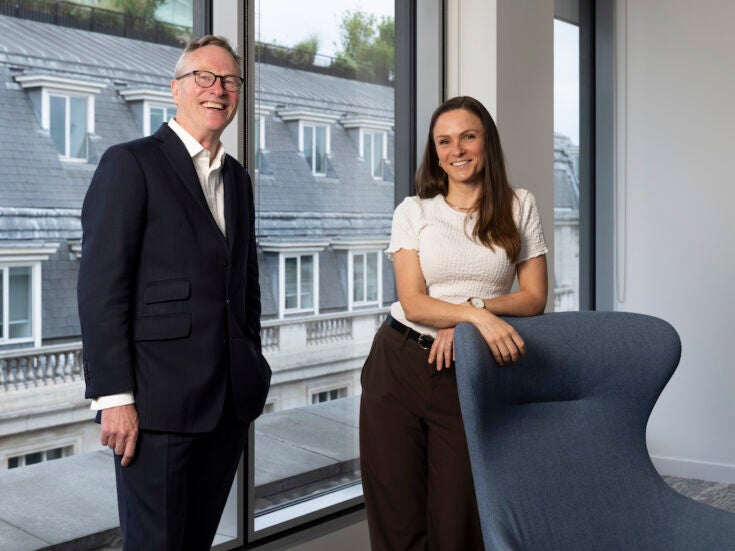
Over the past few years, higher interest rates and tougher financing conditions have led many institutional investors to sit at the sidelines of commercial property investment. Yet cash-rich UHNW investors, including both seasoned property specialists and nascent investors, might be able to take advantage of a recent price correction and purchase a ‘trophy asset’ that could remain within their family for generations.
Private investors may be able to move more nimbly than their institutional counterparts, allowing them a window of opportunity to explore purchasing UK commercial real estate. That’s according to Noel Lander, JLL’s senior director of capital markets, who tells Spear’s there’s currently ‘a lot less competition’ for high-quality assets.
‘We are somewhere near the bottom of the market and the economic cycle, but private investors can often take a much longer term view,’ he says.
What’s more, Lander adds, many vendors are prepared to offer ‘an even greater discount for all equity buyers, given the speed and certainty they can provide in transactions’.
End-to-end expertise
Lander, who has worked in JLL’s capital markets team for more than two decades, says wealthy families and entrepreneurs can draw on the global firm’s expertise as an ‘end-to-end’ property manager and investment firm. At the same time, with the support of insights from a global team, wealthy investors can build their confidence as they grow diversified property portfolios, all while navigating an increasingly complex property landscape, including the changing tax implications of property ownership and understanding how ESG feeds into investing.
‘We’ve found that a lot of private wealth likes to retain control and enjoys the flexibility of direct property ownership,’ he says. ‘Firms like JLL can really educate UHNW investors on the market. We relish working with both entrepreneurs who have made their money in real estate and who understand it, and those who are more familiar with other industries including tech, who are looking to diversify.’
Scale of opportunity in commercial property
As volatility has created uncertainty in many sectors, Lander says yields for offices in London’s West End have ‘remained relatively stable’.
‘If a family is going to be handing the asset down through the generations, a building near St James’s Park or in the heart of Mayfair may go through some turbulent times, but in general it just doesn’t have the same volatility as other parts of the market,’ he adds.
Cameron Ramsey, who leads JLL’s UK capital markets research and strategy team, adds that the office sector has faced challenges given the rise of flexible working, but is now ‘starting to see a greater balance’.
‘Prime office space is one of the biggest opportunities as we move into the next cycle,’ Ramsey adds. ‘It is the perfect time to capitalise on the opportunities for good stock in good locations, given the reduction in competition.’
Ample opportunities can also be found in mixed-use developments. Recent properties listed by the firm include a modern development on the King’s Road in Chelsea, with retail space on the ground floor and residential and office spaces above, as well as a promising collection of buildings on Chiswick High Street which are ripe for residential redevelopment.
When it comes to the investment interests of his UHNW clients, it helps Lander to have in-depth conversations with them to understand the ‘drivers’ of their capital – and the legacy they want to build with their investments.
‘We have seen examples where the investor might be looking to buy a building to house an existing business – but we’ve also seen a number of businesses who are looking to relocate away from London, to major regional centres like Birmingham, Manchester and Edinburgh.’ In Cardiff, meanwhile, JLL recently sold the BBC Hoddinott Concert Hall for £17.35 million.
In recent years, the breadth and depth of opportunities available in the world of commercial property has grown extensively, Ramsey adds. He explains: ‘There has been a real proliferation of asset types over the last few years. Traditionally, you might look at the commercial property landscape as offices, retail and industrial spaces, but there are now a number of other strong growth sectors.’ This includes multi-family residential, already very mature in the US, and in other parts of Europe, including Germany and the Nordics, but still growing rapidly in the UK, as well as the ‘even more nascent’ sectors of science and technology, data centres and renewable energy, Ramsey adds.
Sustainability and global reach
The UK, remains a global leader in life sciences and is rapidly emerging as a hub for renewables – something on which JLL’s Exeter office has provided extensive advice. Commercial property investments can include wind and solar farms, as well as production facilities for sustainable batteries.
With 150 dedicated sustainability specialists in the UK, Lander says the firm is at the forefront of the industry’s transition to environmental consciousness and efficiency. A notable recent example of this is the establishment of a dedicated Energy & Infrastructure Advisory team, giving JLL a ‘huge presence in the renewables market, which is something that many of our competitors do not have’. These types of investments might be appropriate for the increasing number of investors ‘looking to deploy that capital in a way that’s done as responsibly as possible’, Ramsey adds.
For UHNWs in search of commercial property opportunities, JLL can also draw on insights from its 100,000-strong global network. As well as a market-leading presence in London property investment, the firm has offices across Europe and the US, as well as in international centres including Hong Kong and Sydney.
‘One of our USPs is that we’ve got boots on the ground in all of these jurisdictions,’ says Ramsey. ‘Investors may have searched for commercial property in London, but the next destination might be Singapore or New York, and we can coordinate with our local teams there.’
The firm also has a network of 550 researchers globally ‘synthesising property investment data to help investors make decisions’, Ramsey says. In the annual property industry CoStar Awards, JLL has been recognised as the most active acquisition agent in the West End, as well as market leader in a number of other UK regions.
As well as the enticing opportunities afforded by direct ownership, JLL also advises private investors on debt financing and strategic asset management, while investors can also come on board to some projects as silent partners, ‘where they might be looking to take on a stake in a building or portfolio in a more passive role’, notes Lander.
Whatever their investment objectives, Lander says the firm is eager to build enduring relationships with private investors as they grow confidence when making property purchases.
‘We’ve seen it ourselves before where someone has built up a portfolio of £100 million, and their first deal was £1 million. They could be starting small, but the next deal might be worth £5, £10, or £20 million.’
For more on investing in commercial property, speak to an expert at JLL: https://jll.co.uk/en/campaign/private-investment



